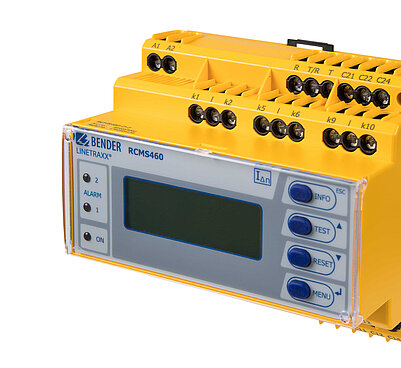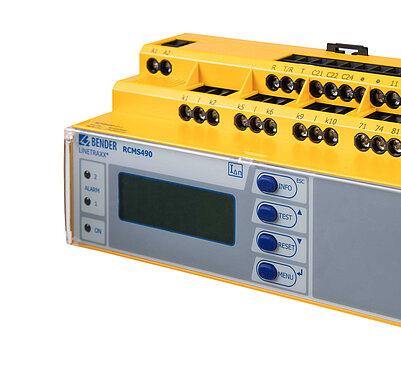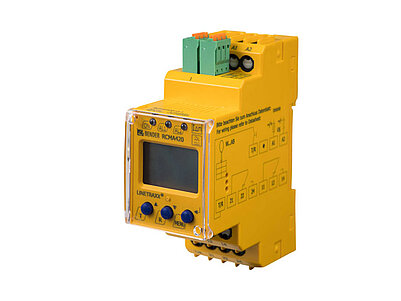

Like the packaging industry, the food industry is a downstream economic branch where major parts of the products generated are processed. These include e.g. breweries, dairies, cooling systems, food manufacturing (or food processing) and many more. The fully automated production must not be interrupted by minor electrical problems. This is why early detection of potential faults is important in order to allow them to be repaired or the system to be shut down specifically when it is convenient to production. Bender fault current monitoring devices allow quick and early detection and forwarding of alarms with details of fault locations.
| Name | Category | Size | Language | Timestamp | D-/B-Number |
|---|---|---|---|---|---|
| Product Overview ISOMETER®/ISOSCAN® | Product Overviews | 5.3 MB | EN | 2024/02/1616.02.2024 | |
| Product Overview - Residual Current Monitoring | Product Overviews | 8.0 MB | EN | 2025/04/0202.04.2025 | |
| Power Quality | Flyers | 468.0 KB | EN | 2022/12/1414.12.2022 | |
| Electrical Safety in Control and Auxiliary Circuits | Technical Article | 632.6 KB | EN | 2019/05/1313.05.2019 |
Products

Multi-channel AC/DC ground-fault monitor

Multi-channel AC/DC ground-fault monitor with individual relay outputs

AC/DC ground-fault monitor
![[Translate to North American English:] RCMA423](/fileadmin/_processed_/a/d/csm_RCMA423_01_WEB_2dc3226c4f.jpg)
AC/DC ground-fault monitor
![[Translate to Canadian English:] LINETRAXX® CTUB100 Series](/fileadmin/_processed_/0/d/csm_CTUB10x-CTBCx_WEB_SI_d8b0d156d2.jpg)
AC/DC sensitive measuring current transformer (Type B)

Recognizing connections – optimizing maintenance
![[Translate to North American English:] NGRM700](/fileadmin/_processed_/3/b/csm_NGRM700_01_WEB_list_97278228d7.jpg)
Monitor for use in high-resistance grounded systems

Multi-channel AC/DC ground-fault monitor

Multi-channel AC/DC ground-fault monitor with individual relay outputs

AC/DC ground-fault monitor
![[Translate to North American English:] RCMA423](/fileadmin/_processed_/a/d/csm_RCMA423_01_WEB_2dc3226c4f.jpg)
AC/DC ground-fault monitor
![[Translate to Canadian English:] LINETRAXX® CTUB100 Series](/fileadmin/_processed_/0/d/csm_CTUB10x-CTBCx_WEB_SI_d8b0d156d2.jpg)
AC/DC sensitive measuring current transformer (Type B)

Recognizing connections – optimizing maintenance
![[Translate to North American English:] NGRM700](/fileadmin/_processed_/3/b/csm_NGRM700_01_WEB_list_97278228d7.jpg)
Monitor for use in high-resistance grounded systems
Safety of machinery - Electrical equipment of machines - Part 1: General requirements